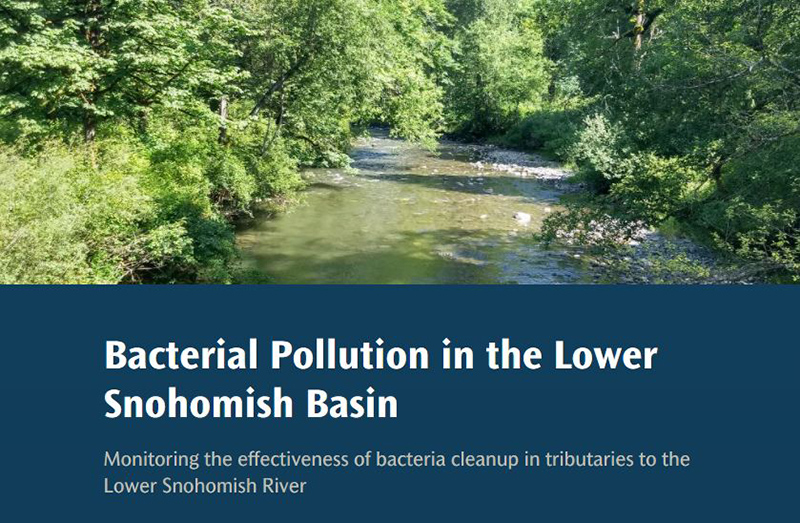Lower Snohomish River Tributaries effectiveness monitoring
We're studying several creeks to assess the effectiveness of local efforts to reduce bacterial pollution in the Lower Snohomish River basin. Local governments, organizations, and neighbors have done a lot of work to improve water quality in this basin over the past several decades.
Monitoring results
Explore maps and data from our Lower Snohomish River Tributaries effectiveness monitoring project in this story map.
High levels of bacteria like fecal coliform and E. coli indicate the presence of human or animal poop in tributaries of the Lower Snohomish River. Fecal pollution can expose people to pathogens that pose risks to human health. This study will help determine which projects effectively reduce bacterial pollution in the water.
Monitoring plan
We collected water samples at 36 sites across these six smaller watersheds in the Lower Snohomish River basin in 2020 – 2021:
- Allen Creek
- Quilceda Creek
- Woods Creek
- French Creek
- Pilchuck River
- The Marshlands
We're analyzing water samples for fecal coliform bacteria and E. coli to discover if bacteria levels have changed since the 1990s and 2000s. The monitoring results inform ongoing efforts to reduce bacterial pollution.
Our Interactive story map: Bacterial Pollution in the Lower Snohomish Basin describes the study, and the Quality Assurance Project Plan: Lower Snohomish River Tributaries Fecal Coliform Bacteria Effectiveness Monitoring contains the detailed study plan. See below for links to data and to other publications.
Publications and data
- Study data
- Publication: Water Quality Assessment of Tributaries to the Snohomish River and Nonpoint Source Pollution TMDL
- Publication: Snohomish River Tributaries Fecal Coliform TMDL Submittal Report
- Publication: Lower Snohomish River Tributaries Fecal Coliform Bacteria TMDL: Detailed Implementation Plan
Related links
Contact information
Niamh O'Rourke
Monitoring Project Manager
niamh.orourke@ecy.wa.gov
360-791-0220


